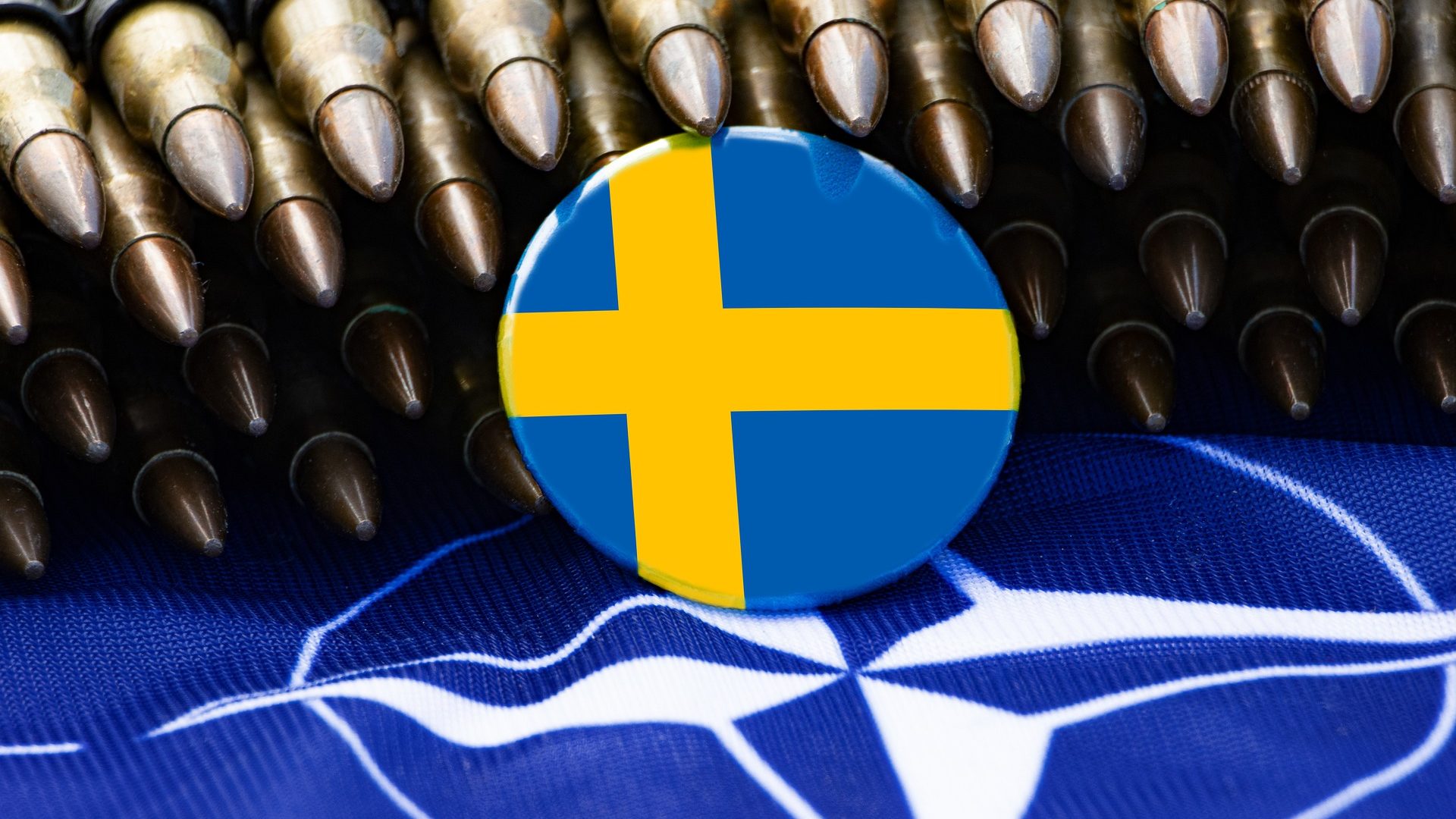Sweden To Introduce Anti-Terrorism Law Amid Turkish Concerns Over NATO Bid
Ankara has raised doubts about Sweden joining the military alliance over accusations that it supports Syrian Kurdish armed groups
Sweden is set to introduce a new anti-terrorism law in July after Turkey raised doubts that it would support Stockholm’s application to join NATO over accusations the Nordic country aids terrorist organizations.
The act includes penalties for various terrorism crimes, including providing support to terrorist organizations.
Swedish Foreign Minister Ann Linde told the country’s parliament on Friday that a “tougher” Terrorist Offenses Act will come into effect on July 1 and more legislation will be introduced later.
Özgür Ünlühisarcıklı, the Ankara office director for the German Marshall Fund, said that the announcement is a positive move forward.
“At the end of the day, I think this is a matter of political will, on both sides, to address the issue. So, if there is political will on both sides, I think that this new terrorism law and other similar steps should solve the problem,” he told The Media Line.
Sweden, along with Finland, applied for NATO membership after Russia’s invasion of Ukraine in late February renewed security concerns in Europe.
However, before the two countries put in their applications, Turkish President Recep Tayyip Erdoğan expressed hesitation over them joining the alliance.
Any of NATO’s 30 member states, whose leaders will meet at a summit in Madrid at the end of the month, can veto a country’s application to join the alliance.
Turkey’s arguments have centered around what it insists is support for Kurdish fighters and people connected to a movement that Ankara believes was behind a failed 2016 coup attempt.
If there is political will on both sides, I think that this new terrorism law and other similar steps should solve the problem
Turkey has fought a decadeslong insurgency from the Kurdistan Workers’ Party, a political organization and armed guerrilla movement in the country that Ankara, the United States, and the European Union recognize as a terrorist organization.
NATO Secretary-General Jens Stoltenberg said on Sunday that he wants to see the issue resolved as soon as possible and that the alliance is working with Ankara to address its concerns.
“And these are legitimate concerns. This is about terrorism and about weapons exports,” he added.
Ankara has criticized Sweden for its arms embargo on Turkey.
Sweden’s Foreign Ministry did not respond to The Media Line’s request for comment by the time of publication.
Linde, the Swedish foreign minister, told her country’s parliament that Sweden’s position on arms sales may change if it becomes a member of NATO.
“Sweden will contribute to the security of NATO as a whole, including Turkey, in the spirit of solidarity. Our ambition is to make constructive progress on the issues that Turkey has raised,” Linde said.
Turkish Foreign Minister Mevlüt Çavuşoğlu told Turkey’s state news agency last month that Ankara wants changes in the anti-terrorism laws of Sweden and Finland and has given them a letter outlining its requests.
“After becoming a member, their attitudes may change. That’s why we gave everything in written form. We want it in written form,” Çavuşoğlu said.
Kristian Brakel, head of the Turkey office for Heinrich Böll Foundation, believes Ankara is hoping to get concessions from the US over the issue, as well as to show that Turkey is influential on the world stage, something that would appeal to people inside the country.
“[It] is a mix of valid security concerns in [Syria] and at home and the opportunity to maybe get some concessions,” Brakel told The Media Line.
Erdoğan’s popularity has taken a hit due to his country’s current and deep economic crisis.
However, a recent poll showed his approval rating improving, with one pollster citing his position on the NATO bids of Sweden and Finland as one of the reasons for the increase.
Brakel warned that Erdoğan did not have a lot of time left to come to an agreement on the issue and could face negative consequences, such as the US backing out on a potential deal to provide Ankara with fighter jets.
These are legitimate concerns. This is about terrorism and about weapons exports.
Ünlühisarcıklı says that the Turkish president has international and domestic concerns to consider when dealing with foreign policy.
Domestic politics will especially weigh on Erdoğan as the country gets set for scheduled elections next year with a strong prospect that he may lose his parliamentary majority to an opposition coalition.
Ünlühisarcıklı says that Turkey could face increasing pressure over its stance.
“This will have an intoxicating effect on Turkey’s relations with Western allies,” he said.


